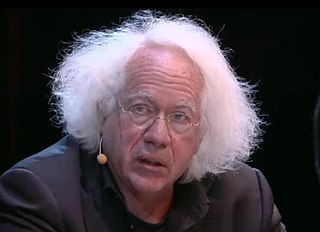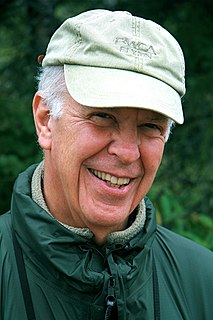A Quote by Leon Wieseltier
Philip Kitcher has composed the most formidable defense of the secular view of life since Dewey. Unlike almost all of contemporary atheism, Life After Faith is utterly devoid of cartoons and caricatures of religion. It is, instead, a sober and soulful book, an exemplary practice of philosophical reflection. Scrupulous in its argument, elegant in its style, humane in its spirit, it is animated by a stirring aspiration to wisdom. Even as I quarrel with it I admire it.
Quote Topics
Admire
After
Almost
Almost All
Animated
Argument
Aspiration
Atheism
Book
Caricatures
Cartoons
Composed
Contemporary
Defense
Devoid
Elegant
Even
Exemplary
Faith
Formidable
Humane
Instead
Life
Most
Philip
Philosophical
Practice
Quarrel
Reflection
Religion
Secular
Since
Sober
Soulful
Spirit
Stirring
Style
Unlike
Utterly
View
Wisdom
Related Quotes
From time to time I have wished to do more work in philosophy of religion, but the demands and challenges have been such that it needed more work than I had time for. I sneaked a chapter into my book on loyalty that touched on some issues in the area. Maybe in the future I will try responding to Philip Kitcher's excellent critique: Life After Faith: The Case for Secular Humanism - it gets closer to me than much of what is produced in the field.
Secular humanism does not have the essential attributes of a religion: belief in a deity, the wish for some sort of afterlife, sacred dogma or texts, or an absolutist moral creed. Instead, it expresses a philosophical and ethical point of view, and it draws upon the scientific method in formulationg its naturalistic view of the nature.
I'm not against religion in the sense that I feel I can't tolerate it, but I think written into the rubric of religion is the certainty of its own truth. And since there are 6,000 religions currently on the face of the earth, they can't all be right. And only the secular spirit can guarantee those freedoms and it's the secular spirit that they contest.
In contemporary society secular humanism has been singled out by critics and proponents alike as a position sharply distinguishable from any religious formulation. Religious fundamentalists in the United States have waged a campaign against secular humanism, claiming that it is a rival "religion" and seeking to root it out from American public life. Secular humanism is avowedly non-religious. It is a eupraxsophy (good practical wisdom), which draws its basic principles and ethical values from science, ethics, and philosophy.
I am afraid I am one of those people who continues to read in the hope of sometime discovering in a book a single—and singular—piece of wisdom so penetrating, so soul stirring, so utterly applicable to my own life as to make all the bad books I have read seem well worth the countless hours spent on them. My guess is that this wisdom, if it ever arrives, will do so in the form of a generalization.
The life of any one can by no means be changed after death; an evil life can in no wise be converted into a good life, or an infernal into an angelic life: because every spirit, from head to foot, is of the character of his love, and therefore, of his life; and to convert this life into its opposite, would be to destroy the spirit utterly.
If there is such a thing as philosophical progress, then why - unlike scientific progress - is it so invisible? Philosophical progress is invisible because it is incorporated into our points of view. What was torturously secured by complex argument comes widely shared intuition, so obvious that we forget its provenance.
No one can lead a happy life, or even one that is bearable, without the pursuit of wisdom, and that the perfection of wisdom is what makes the happy life, although even the beginnings of wisdom make life bearable. Yet this conviction, clear as it is, needs to be strengthened and given deeper roots through daily reflection; making noble resolutions is not a important as keeping the resolutions you have made already.





































